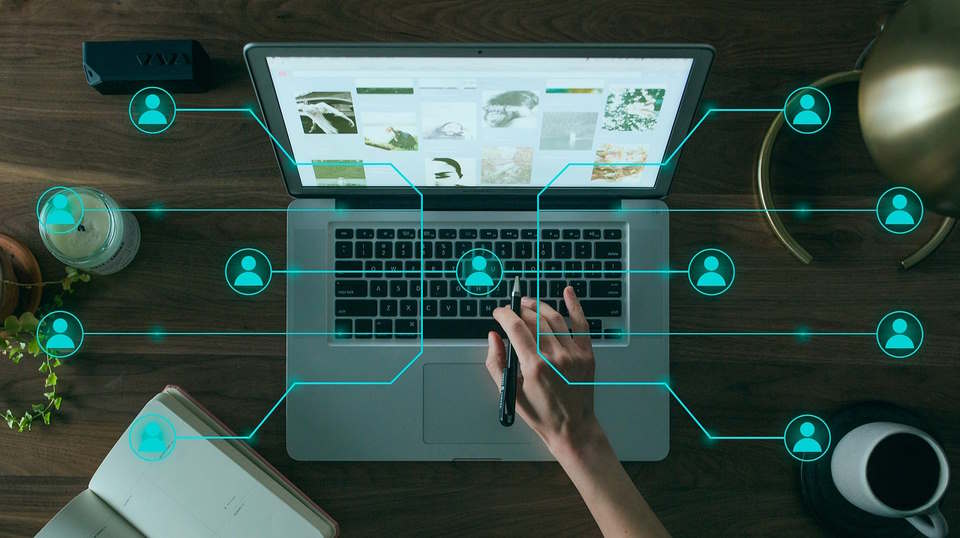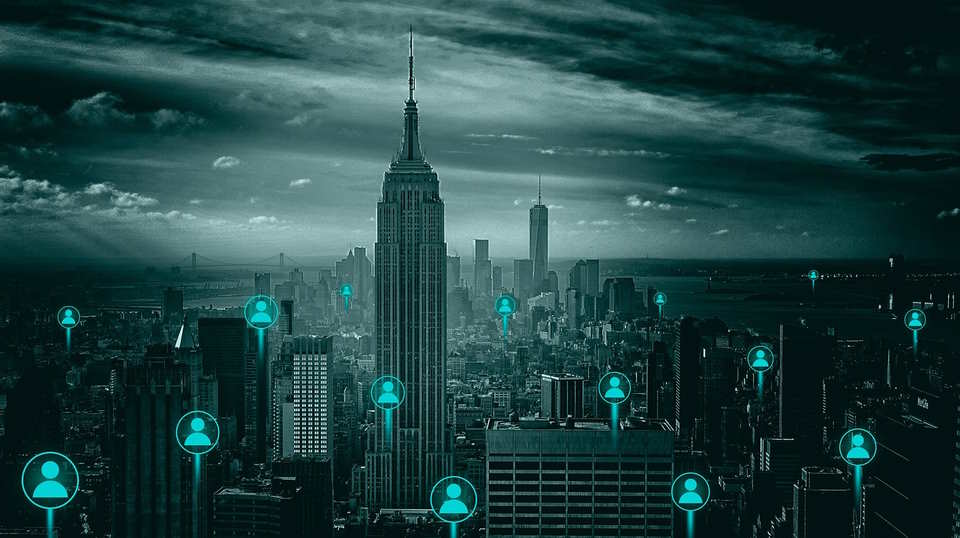Technology has become an integral part of our lives, changing the way we communicate, work, and socialize. While technology has many benefits, some argue that it makes us more alone. The ability to connect with others from any location and at any time seems like an advantage, but it may actually lead to less social interaction. We will explore the effects of technology on our social lives and personalities. We will examine whether technology connects us more or makes us more alone, how technology causes less social interaction, and whether technology changes people’s social behavior. So, let’s delve into the topic to gain a better understanding of the impact of technology on our personal lives.
Introduction

Technology has revolutionized many aspects of our lives, changing the way we communicate and interact with each other. While some argue that technology has brought people closer together, others believe it has made us more alone than ever before. We will explore the impact of technology on social interactions and attempt to answer the question: Does technology make us more alone?
On one hand, technology has made it easier to connect with people all over the world. Social media platforms like Facebook and Twitter allow us to share our lives with friends and family in real-time, regardless of geographical barriers. We can now maintain relationships with people we might otherwise have lost touch with, and even form new friendships online.
However, despite the benefits of these technological advancements, there are downsides. Many argue that technology has encouraged isolation and decreased face-to-face interactions. We spend more time in front of screens than ever before, and often use smartphones or other devices as a way to avoid social situations. It’s easier to send a message than to have a conversation, and many people find themselves feeling lonely and disconnected as a result.
- Human relationships are built on shared experiences and emotions. When we communicate through technology, we lose some of the nuances that make these interactions so valuable.
- Eye contact, body language, and tone of voice are all crucial to building trust and empathy, and are all too often lost in our digital interactions.
- This can lead to misunderstandings and a decrease in our ability to build and maintain meaningful relationships.
Does Technology Connect Us More or Make Us More Alone?

Technology has become an intrinsic part of our daily lives, providing us with numerous benefits including easier communication, faster access to information, and increased productivity. However, as technology continues to evolve, many people are beginning to question whether it actually connects us more or makes us more alone.
On one hand, technology has created new opportunities for social interaction. Social media platforms, messaging apps, and video conferencing tools have made it easier than ever to connect with people from all over the world. In addition, the rise of online communities has allowed individuals with shared interests to connect and collaborate in ways that were once impossible.
However, many argue that technology has actually made us more isolated. Instead of having face-to-face conversations with friends and colleagues, we often rely on digital communication methods that lack the same level of emotional depth. In addition, the constant bombardment of notifications and messages can leave people feeling overwhelmed and disconnected from the world around them.
- Despite these concerns, there are also many benefits to using technology for social interaction. For example, individuals who may not have access to social groups in person due to physical constraints or lack of proximity can still connect with others through technology. This can be particularly valuable for individuals who are housebound, live in remote areas or have mobility issues.
- Overall, whether technology connects us more or makes us more alone is ultimately up to the individual users. It is crucial that we find a balance between using technology as a tool to enhance our social connections and relying too heavily on it. By being mindful of our technology usage, we can stay connected while still maintaining meaningful relationships with those around us.
| Pros | Cons |
|---|---|
| Improved communication | Can lead to social isolation |
| Increased accessibility to social groups | Lack of emotional depth in digital communication |
| Opportunities for collaboration | Overwhelming amount of notifications can cause stress |
Why Does Technology Make Us More Alone?

Technology has been hailed as one of the greatest inventions of our time – it has brought about convenience, efficiency and accessibility on a scale we could never have imagined. However, with these benefits come unintended consequences, such as social isolation and loneliness. So why does technology make us feel more alone?
Firstly, technology provides us with an illusion of connectivity. We are constantly bombarded with notifications, messages and updates from our virtual networks, and this creates a false sense of social interaction. However, these virtual interactions do not provide the same level of emotional support that physical Human interactions do, and can actually have the opposite effect of making us feel more alone.
Secondly, technology has changed the nature of social interaction. Social media platforms, for example, encourage us to present curated versions of ourselves to the world – an idealised “highlight reel”. This can create feelings of inadequacy and social comparison, leading to feelings of isolation and the belief that we can never measure up to others.
Lastly, technology can often replace physical Human interactions entirely. Instead of meeting up with friends for a coffee, we may opt for a virtual chat or message instead. This can lead to a reduction in face-to-face interactions, which are essential for building and maintaining social bonds. Social isolation can then begin to set in.
So how can we combat the negative effects of technology on our social lives?
- We can start by being aware of our technology usage – monitoring our social media intake and ensuring that we have regular face-to-face interactions with our loved ones.
- We can also take breaks from technology, allowing ourselves the opportunity to be fully present in our daily lives and connect with those around us on a deeper level.
How Does Technology Cause Less Social Interaction?

Technology has been rapidly advancing, making our lives easier but it also has its downsides. One of these downsides is the negative impact it has on our social interaction. With the rise of smartphones, social media and instant messaging, people are becoming more isolated from reality and the people around them. In this blog post, we will explore how technology is causing less social interaction.
Firstly, technology has replaced face-to-face communication with virtual conversations. Texting and messaging have become the norm for young people, rather than calling or meeting up with their friends in person. Students may also use technology to complete their homework instead of spending time in study groups or seeking help from classmates. The lack of face-to-face interaction means less opportunities to develop social skills and relationships which are essential for one’s mental and emotional stability.
Secondly, technology, particularly social media, has reduced the amount of time people spend together physically. People can communicate through Facebook, Twitter, Instagram and other social media platforms without the need for physical interaction. This has resulted to people prioritizing their digital relationships over physical ones. This can lead to people feeling lonely, depressed and anxious. Reduced social interaction also means that there are less opportunities to learn about others and the world around us.

Lastly, technological developments have led to the rise of remote work. Working from home and video conferencing has replaced office interaction. Remote workers lack peer support that is essential to the workplace environment. Reduced social interaction in the workplace can lead to mental and emotional health problems for employees.
| Impact of Technology on Social Interaction | Advantages | Disadvantages |
|---|---|---|
| Reduction of Face-to-Face Interaction | -Convenience | -Reduced Development of Social Skills -Less Relationship Building |
| Reduced Physical Interaction | -Ease of Communication -Connections with People who are Far Away |
-Depression, Loneliness and Anxiety -Less Ability to Learn about Others |
| Remote Work | -Flexibility in Schedule and Location | -Reduced Social Interaction -Less Workplace Support |
Does Technology Change People’s Social Behavior?

The world is constantly evolving due to various advancements in technology. Technology has brought about significant changes in our lifestyles, work culture, communication and social interactions. Communication technology has made it easier for people to connect and stay in touch with each other, irrespective of their geographical locations. The advent of smartphones and social media has transformed the way people interact with each other. It has made communication more convenient, fast and efficient.
However, the fast-paced lifestyle that comes with technology has also led to a decline in face-to-face communication and social interactions. People tend to rely more on digital communication channels instead of meeting in person. Social media has made it easier to connect with people, but, it has also made people more isolated and detached from the real world. The addiction to social media and smartphones has resulted in people spending less time with their friends and family and more time on their devices.

- One of the main reasons why technology has changed people’s social behavior is because it has affected the way we communicate with each other. Digital communication channels have made it easier for us to connect with people, but, it has also made us more distant. People tend to express themselves better through text messages and emails than when they’re speaking in person. This has made it more challenging for people to communicate their emotions effectively.
- Another reason why technology has changed people’s social behavior is that it has created a culture of instant gratification. People expect to get instant replies to their messages and want things to happen quickly. This has made it harder for them to be patient and wait for things to happen naturally.
| Positive impacts of technology on social behavior | Negative impacts of technology on social behavior |
|---|---|
| Technology has made it easier for people to connect with each other, irrespective of their geographical locations. | Social media addiction has resulted in people spending less time with their friends and family and more time on their devices. |
| Technology has made communication more convenient, fast and efficient. | Instant gratification has made it harder for people to be patient and wait for things to happen naturally. |
However, technology has also had some positive impacts on social behavior. For instance, it has made it easier for people to connect with each other and stay in touch. It has also made it easier for people to form new relationships and connect with like-minded people. Additionally, technology has made it easier for people to express themselves through art, music and videos, which has opened up new avenues for social interactions.
Does Technology Affect Our Personality?

Technology has transformed the world in a significant way. In today’s digital age, we are more reliant on technology than we have ever been before. With the advancement of technology, it has become an integral part of our lives. There is no denying that technology has made our lives more comfortable, but it has also brought about some negative changes. One of the significant concerns is whether technology affects our personality.
Technology has changed the way we interact and communicate with each other. With social media platforms like Facebook, Twitter, and Instagram, we can connect with people from all over the world. But, this can have some negative effects on our personality. The constant need to be connected online and to seek validation through social media can lead to anxiety, depression, and even addiction. We become more self-centered, less empathetic, and more isolated from the real world.

- Does technology cause social anxiety?
- Does technology make us anti-social?
- Does technology make us narcissistic?
These are some of the questions that are raised about the impact of technology on our personality. In particular, social media has been linked to causing social anxiety and reducing face-to-face interaction. With the rise of online communication, we are less likely to engage with people in person, leading to a decline in social skills. Moreover, social media platforms are designed to generate likes and comments, which can make us more self-absorbed and narcissistic.
In conclusion, the impact of technology on our personality is complex and multifaceted. While technology has made our lives more convenient, it has also led to changes in our behavior and social skills. We need to be more mindful of our technology use and ensure that we remain connected to the real world. Ultimately, it is up to us to balance the benefits and drawbacks of technology and maintain a healthy and balanced lifestyle.
